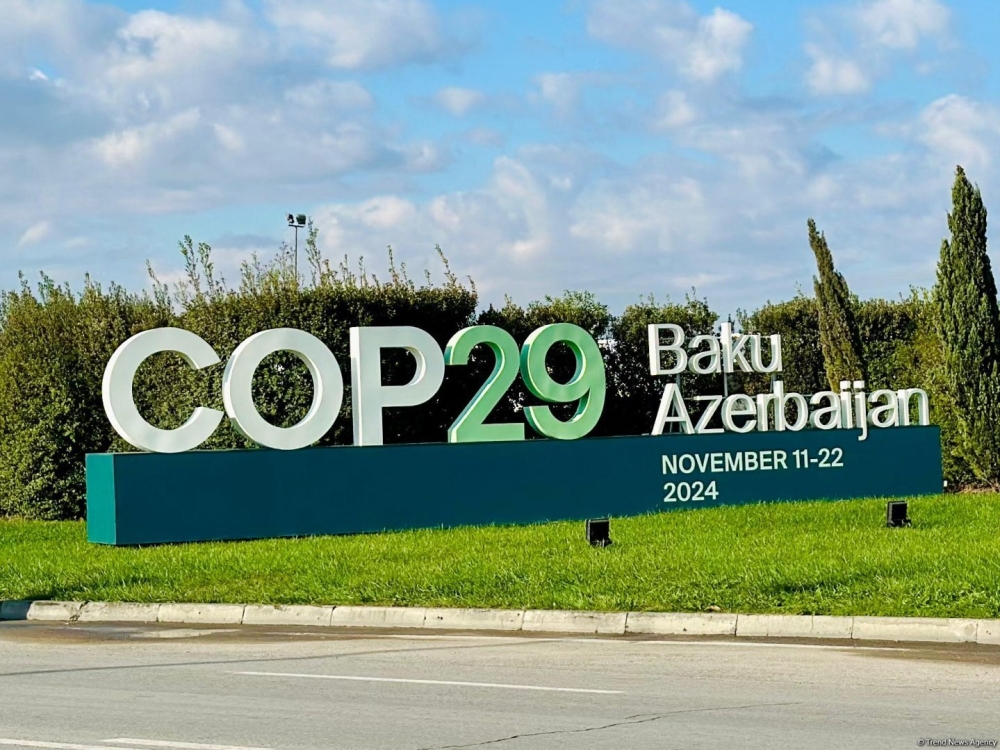

Rwanda is pushing for a new global goal for climate finance that includes support for loss and damage, alongside mitigation and adaptation efforts at the 29th United Nations Climate Change Conference, COP29, underway in Baku, Azerbaijan.
ALSO READ: Key sectors that will take lion's share in Rwanda's climate financing
From November 11 through 22, the global meeting brings together world leaders, policymakers, and climate champions to tackle climate change and inspire collective action for a sustainable future.
In October, Rwanda launched the first-ever climate and nature finance strategy which seeks to accelerate public and private sector investments in climate action and biodiversity conservation. According to Rwanda’s delegation in Baku, countries must set a New Collective Quantified Goal of at least $1.3 trillion annually and agree on a regular process review to align the goal with the evolving needs of developing countries that are particularly vulnerable to climate change.
The delegation is also expected to advocate for stronger global emissions reductions and call for increased financing for resilience and adaptation.
ALSO READ: Rwanda faces $7 billion funding gap to implement climate action plan
"The delegation, which includes representatives from government, the private sector, and civil society, will push for the finalization of a New Collective Quantified Goal on Climate Finance that is not less than USD 1.3 trillion annually, and call for major emitters to reduce carbon emissions to stay within the 1.5°C target of the Paris Agreement,” reads part of a statement from the Ministry of Environment.
Growing loss and damage fund
At COP28 pledges made to the fund totalled $772 million. However, analysts argue that this is a drop in the ocean considering the total amount of finance needed for loss and damage. It is estimated to reach up to $580 billion annually by 2030 and $1.7 trillion annually by 2050.
"We hope to see greater commitments to the fund at COP29,” the statement added
As noted, the fund will need to receive financial inputs from new and innovative sources, including the private sector.
At COP29, loss and damage are a priority for Rwanda, which is highlighting the need for sustained funding to assist communities facing the devastating effects of climate disasters.
"This call is critical for ensuring that countries most affected by climate impacts receive consistent support to recover and build stronger communities.”
Pitching new climate and nature strategy
Other key initiatives include showcasing Rwanda’s new Climate and Nature Finance Strategy. Launched in October, the strategy is a comprehensive framework designed to accelerate investment in climate action and nature conservation.
ALSO READ: Rwanda launches Climate and Nature Finance Strategy to spur private sector financing
The strategy also aims to position Rwanda as a leader in sustainable development, advancing both climate resilience and environmental preservation while supporting economic growth and social well-being.
Faced with challenges of limited domestic financial resources and difficulties in accessing international finance, Rwanda developed the strategy to leverage a combination of public, private, and international financing mechanisms, including green bonds, carbon markets, biodiversity credits, payment for ecosystem services, and blended finance to support climate and nature-related initiatives.
According to a biodiversity financial needs assessment conducted in 2018, it is estimated that Rwanda needs between $97.5 million and $107.7 million during 2019-2030 to finance its biodiversity goals.
Other potential negotiations include greening trade, where promoting environmental goods and low-carbon technologies can create sustainable jobs and ensure that developing countries have access to the investment and technologies needed to implement long-term climate goals.
Rwanda has set ambitious goals for carbon neutrality by 2050, promoting biodiversity conservation and sustainable economic development. The country’s climate and nature finance strategy will mobilize financial resources.


